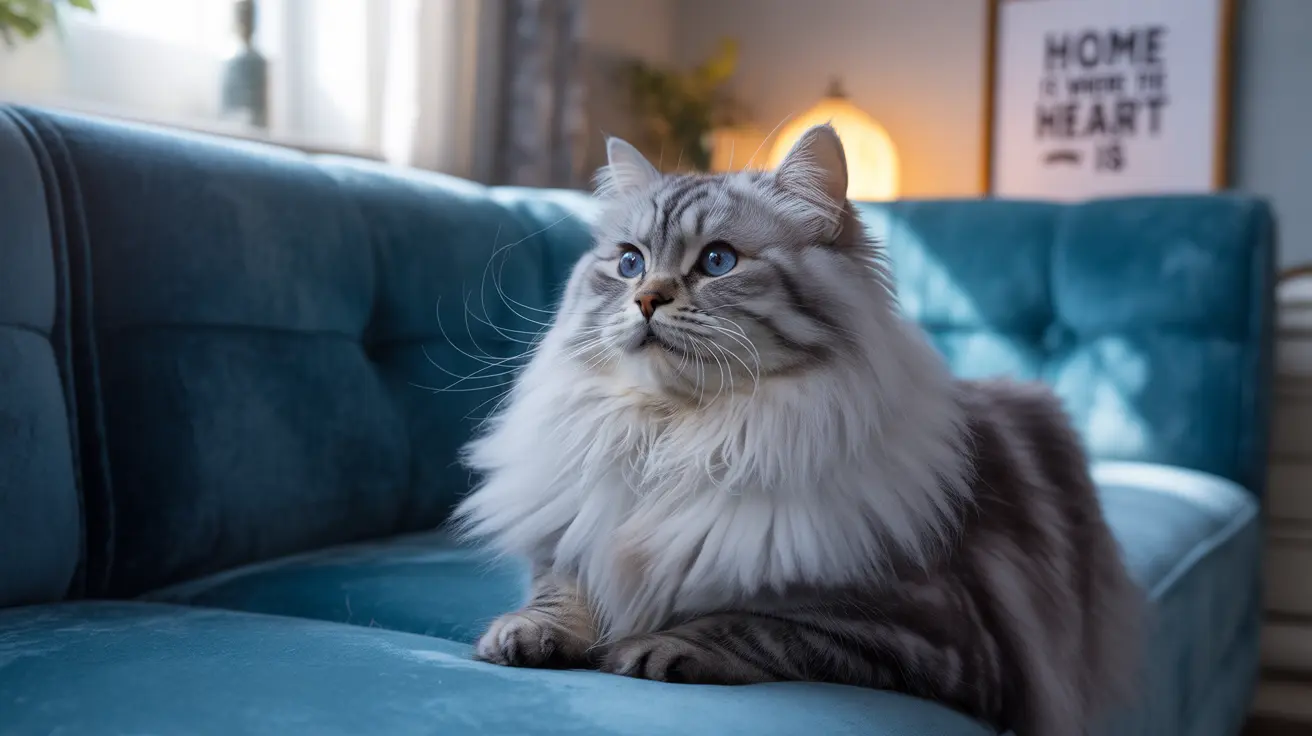Have you ever caught your cat fixing you with an unwavering stare and wondered what's going through their mind? As mysterious as our feline friends can be, their staring behavior actually communicates quite a lot about their needs, emotions, and relationship with us. Let's decode the various meanings behind your cat's penetrating gaze and learn how to better understand this common feline behavior.
The Science Behind Feline Staring
Unlike wild cats, domestic cats have evolved to use direct eye contact as a form of communication with humans. Research shows that cats have adapted their social behaviors specifically to interact with their human caregivers, and staring is one of their most effective tools for getting what they want.
Studies indicate that cats are remarkably adept at reading human facial expressions and body language, using this information alongside their staring behavior to achieve their goals.
Common Reasons Your Cat Stares at You
Hungry and Hoping for Food
One of the most common reasons for feline staring is simple: they're hungry. Cats quickly learn that making eye contact with their owners, especially around feeding time, often results in a meal. This behavior becomes reinforced when it successfully leads to food.
Showing Affection and Trust
When accompanied by slow blinks and relaxed body language, staring can be a sign of deep affection. Known as a "cat kiss," this gentle gaze indicates that your cat feels safe and bonded with you. Scientists have confirmed that this slow-blinking behavior strengthens the human-cat relationship.
Seeking Attention or Playtime
Cats often stare when they want to initiate interaction. If your cat's pupils are dilated and their tail is twitching, they might be inviting you to play. This type of staring often precedes playful behavior like pouncing or chasing.
Understanding Different Types of Stares
The Comfortable Gaze
A relaxed stare with half-closed eyes indicates contentment and trust. Your cat might maintain this gentle gaze while lounging nearby, simply enjoying your presence.
The Alert Stare
Wide eyes with dilated pupils could mean your cat is in hunting mode or feeling anxious. Pay attention to their body language to determine whether they're playful or stressed.
The Request Stare
An intense, focused stare often means your cat wants something specific. This might be accompanied by meowing or leading you to their food bowl, litter box, or favorite toy.
When to Be Concerned
While most cat staring is normal behavior, certain types of staring might indicate health issues. If your cat's staring behavior suddenly changes or is accompanied by unusual symptoms, consult your veterinarian. This is especially important for senior cats, as excessive staring could indicate cognitive decline or vision problems.
Frequently Asked Questions
Why does my cat stare at me constantly, and what does it mean?
Constant staring usually indicates your cat wants something from you - typically food, attention, or play. It's their way of communicating their needs and maintaining social bonds with you.
How can I tell if my cat is staring at me because they want attention or food?
Look for additional cues: if they're near their food bowl or it's close to mealtime, they're likely hungry. If they're purring, making gentle movements, or approaching you, they probably want attention or affection.
What does a slow blink from my cat mean, and how should I respond?
A slow blink is a sign of trust and affection, often called a "cat kiss." Respond by slowly blinking back to strengthen your bond and show you return their affection.
Should I be concerned if my cat stares at nothing, and what could be causing it?
Occasional staring at nothing is normal - cats can detect subtle movements and sounds we can't. However, frequent vacant staring, especially in older cats, could indicate medical issues and should be evaluated by a vet.
How can I differentiate between a cat's stare of affection and a sign of stress or fear?
Look at their overall body language. An affectionate stare comes with relaxed muscles, slow blinks, and casual posture. A stressed or fearful stare involves dilated pupils, tense muscles, flattened ears, or a crouched position.
Understanding your cat's staring behavior helps strengthen your bond and ensures you're meeting their needs effectively. By paying attention to the context and accompanying body language, you can better interpret what your feline friend is trying to tell you.






